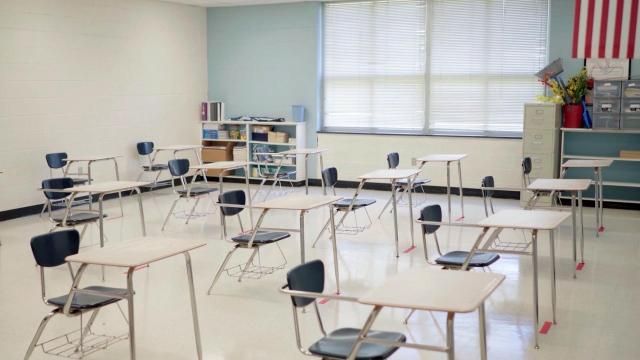Editorial: Respect law, not partisanship, must be state Supreme Court majority's guide

CBC Editorial: Wednesday, Dec. 6, 2023; editorial #8891
The following is the opinion of Capitol Broadcasting Company
When the North Carolina Supreme Court gets around, again, to determining the rights of the state’s children, the majority of justices will be guided by politics and power not the state Constitution, the law or the access for all to a quality education.
Perhaps the greatest irony in this now 30-year legal quagmire is that one justice, Anita Earls, is being forced to defend herself against charges of inappropriate partisanship from the bench. She’s had the temerity to, of all things, complain actually that some of her colleagues have in their duties to the court and justice been motivated by their personal political partisanship and not the law. (The case is now before the U.S. Court of Appeals).
Just who on the high court has acted in a partisan manner? Justice Phil Berger Jr., namesake son of the state’s most powerful Republican (state Senate leader Phil Berger, R-Rockingham), has openly complained that other Republican judges were hiring staffers based on qualifications more than political affiliation. He pointedly called out Republican state Appeals Court Judge Donna Stroud – who did win reelection in spite of Berger’s opposition.
Chief Justice Paul Newby moved quickly, after assuming leadership of the court, to put a partisan stamp on the non-partisan Administrative Office of the Courts – firing the top administrator and five long-time staffers and replacing them with GOP loyalists. Newby has referred to current and former fellow justices who are Democrats as “dangerous.” He said: “Imagine seven AOCs (New York Democratic U.S. Rep. Alexandria Ocasio-Cortez) on the state Supreme Court,” Newby said at a GOP event. “Well, folks, we got six,” he said to laughs. “It’s six to one … I lose sleep at night thinking what would it be like if we had no one to hold accountable those that want to cause social change through our judicial branch.”
Amid the side issues have been motions to have two of the justices recuse themselves from participating in the case. Legislative leaders want Earls removed while, following that request, the original plaintiffs in the matter asked for Justice Phil Berger Jr.’s recusal “because Justice Berger’s father is the appellant in this case.”
Lost in the rise of politics and powerplays on the state’s high court is the essence of the more significant legal and constitutional issues. Just what is required to meet the State Constitutional right – and the Constitution’s command that the General Assembly fulfill it. “The General Assembly shall provide by taxation and otherwise for a general and uniform system of free public schools,” North Carolina’s Constitution declares. “And wherein equal opportunities shall be provided for all students.”
Since 1997 North Carolina’s Supreme Court, focusing on the Constitution and NOT political partisanship or power, has stood with the state’s children’s right to a quality education. First in the unanimous 1997 initial Leandro ruling written by Chief Justice Burley Mitchell, a Democrat. Then, in a unanimous 2004 opinion written by Justice Bob Orr, a Republican reaffirming the right of “equal opportunity to receive a sound basic education.”
When, just last year, the high court affirmed a lower court order directing the legislature to provide the funding to implement a remedial program the plaintiffs and defendants in the initial case agreed on. It is critical here to understand that the court wasn’t simply ordering the legislature to spend money – it was directing that a specific program – a court settlement – be implemented. It is the legislature’s DUTY to provide the resources.
If the current high court, regardless of those justices who end up considering the case, respect the State Constitution and its clear mandate on the rights of children; if they respect the doctrine of stare decisis (respect for previous rulings) they will continue to require the implementation of the remedial plan to assure a sound basic education everywhere in the state.
North Carolina will be better for it.
If politics and power are more important, it will be to the tragic diminishment of the state’s kids, the future of the state and the status of the courts as a separate and equal branch of government.
Capitol Broadcasting Company's Opinion Section seeks a broad range of comments and letters to the editor. Our Comments beside each opinion column offer the opportunity to engage in a dialogue about this article. In addition, we invite you to write a letter to the editor about this or any other opinion articles. Here are some tips on submissions >> SUBMIT A LETTER TO THE EDITOR









